Contact Us
To provide feedback on the Community Policing Dispatch, e-mail the editorial board at CPDispatch@usdoj.gov.
To obtain details on COPS Office programs, publications, and resources, contact the COPS Office Response Center at 800-421-6770 or AskCopsRC@usdoj.gov

U.S. Department of Justice
Office of Community Oriented Policing Services
Washington, DC 20530
Occupational stressors and trauma in policing are rampant, and the data on the damage caused are unsettling. Officers face significantly higher risk of stress-related illness than other professions, as well as alarmingly high rates of mental distress and suicidality (Violanti et al. 2017). To promote officer health and wellness, police agencies around the country are turning to mindfulness skills training as a complement to traditional tactical training protocols. Studies have demonstrated the positive impact of this type of training on officer health and wellness, cognitive acuity, performance and morale (Grupe et al. 2020). Officers report better sleep, greater discernment, and improved relationships at work and home. The benefits to officer health, resiliency, and longevity are undeniable, but the impact on mitigating excessive use of force, improving police-community relations, and fostering procedural justice is less widely known.
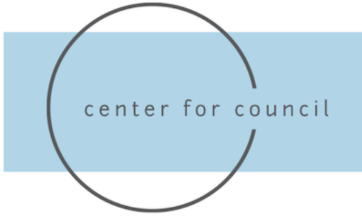 Peace Officer Wellness, Empathy & Resilience (POWER) is a training program developed by Center for Council, a Los Angeles nonprofit organization, to improve physical, emotional, and mental health; boost team and individual performance; and support community relations. The organization has created numerous programs based on mindfulness practices and the communications platform of council for educators, healthcare workers, community activists, and even incarcerated individuals, all focused on developing self-awareness, strengthening communication skills, and learning to practice compassion. The methodology of their programs remains consistent, although the format is adapted to each unique setting. POWER was developed as the organization’s team began researching the impact of occupational stressors within law enforcement on officers’ physical, emotional, and mental health as well as the benefits of compassion.
Peace Officer Wellness, Empathy & Resilience (POWER) is a training program developed by Center for Council, a Los Angeles nonprofit organization, to improve physical, emotional, and mental health; boost team and individual performance; and support community relations. The organization has created numerous programs based on mindfulness practices and the communications platform of council for educators, healthcare workers, community activists, and even incarcerated individuals, all focused on developing self-awareness, strengthening communication skills, and learning to practice compassion. The methodology of their programs remains consistent, although the format is adapted to each unique setting. POWER was developed as the organization’s team began researching the impact of occupational stressors within law enforcement on officers’ physical, emotional, and mental health as well as the benefits of compassion.
In 2018, the program was piloted with officers from the Federal Bureau of Prisons followed by several cohorts from the Los Angeles Police Department (LAPD). POWER is now certified by the California Commission on Peace Officer Standards and Training and provides professional credit to police and correctional officers throughout California. POWER uses evidence-based methodology for training skills of interpersonal communication, self-regulation, and compassion, adapted to the unique culture, environment, and stressors experienced in law enforcement. The intensive and interactive six-month curriculum provides a deep exploration of the science and experience of mindfulness and compassionate communication (council) as it relates to stress, resiliency, performance, and community building.
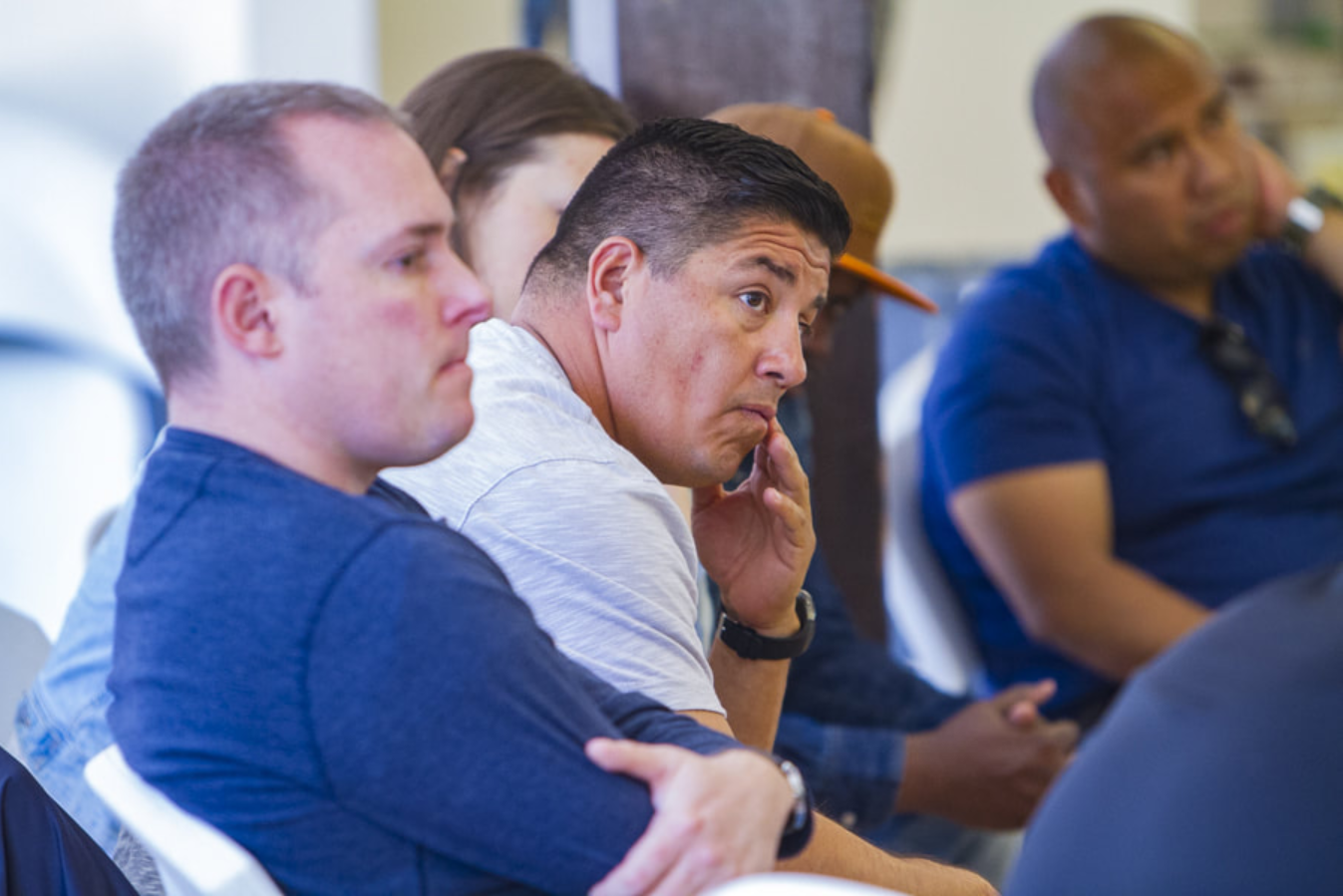 The focus of the POWER program is not to avoid the stress and trauma that comes with the badge but to train officers to be more skillful in the way they navigate these occupational hazards. The program is rigorous, beginning with a two-day workshop that dives into the science of the autonomic nervous system; the physical, mental, and emotional impact of stress; and the way dysregulation affects health, communication, and relationships. This impact is explored in weekly individual assignments and self-directed activities as well as weekly “council huddles”—peer-led discussion groups that provide a mechanism for cultivating more attentive and respectful listening skills and capacity for more authentic expression. Officers learn to self-facilitate these huddles and explore with their peers how they experience the themes the course presents in their work and lives. "Working with compassion starts with understanding our own stress-response and how to better manage that,” explains Executive Director Jared Seide. “Officers then experience a deeper kind of understanding and empathy in the council huddles, which primes their capacity to work with a challenging colleague, community member, or crime suspect in a more skillful and discerning way."
The focus of the POWER program is not to avoid the stress and trauma that comes with the badge but to train officers to be more skillful in the way they navigate these occupational hazards. The program is rigorous, beginning with a two-day workshop that dives into the science of the autonomic nervous system; the physical, mental, and emotional impact of stress; and the way dysregulation affects health, communication, and relationships. This impact is explored in weekly individual assignments and self-directed activities as well as weekly “council huddles”—peer-led discussion groups that provide a mechanism for cultivating more attentive and respectful listening skills and capacity for more authentic expression. Officers learn to self-facilitate these huddles and explore with their peers how they experience the themes the course presents in their work and lives. "Working with compassion starts with understanding our own stress-response and how to better manage that,” explains Executive Director Jared Seide. “Officers then experience a deeper kind of understanding and empathy in the council huddles, which primes their capacity to work with a challenging colleague, community member, or crime suspect in a more skillful and discerning way."
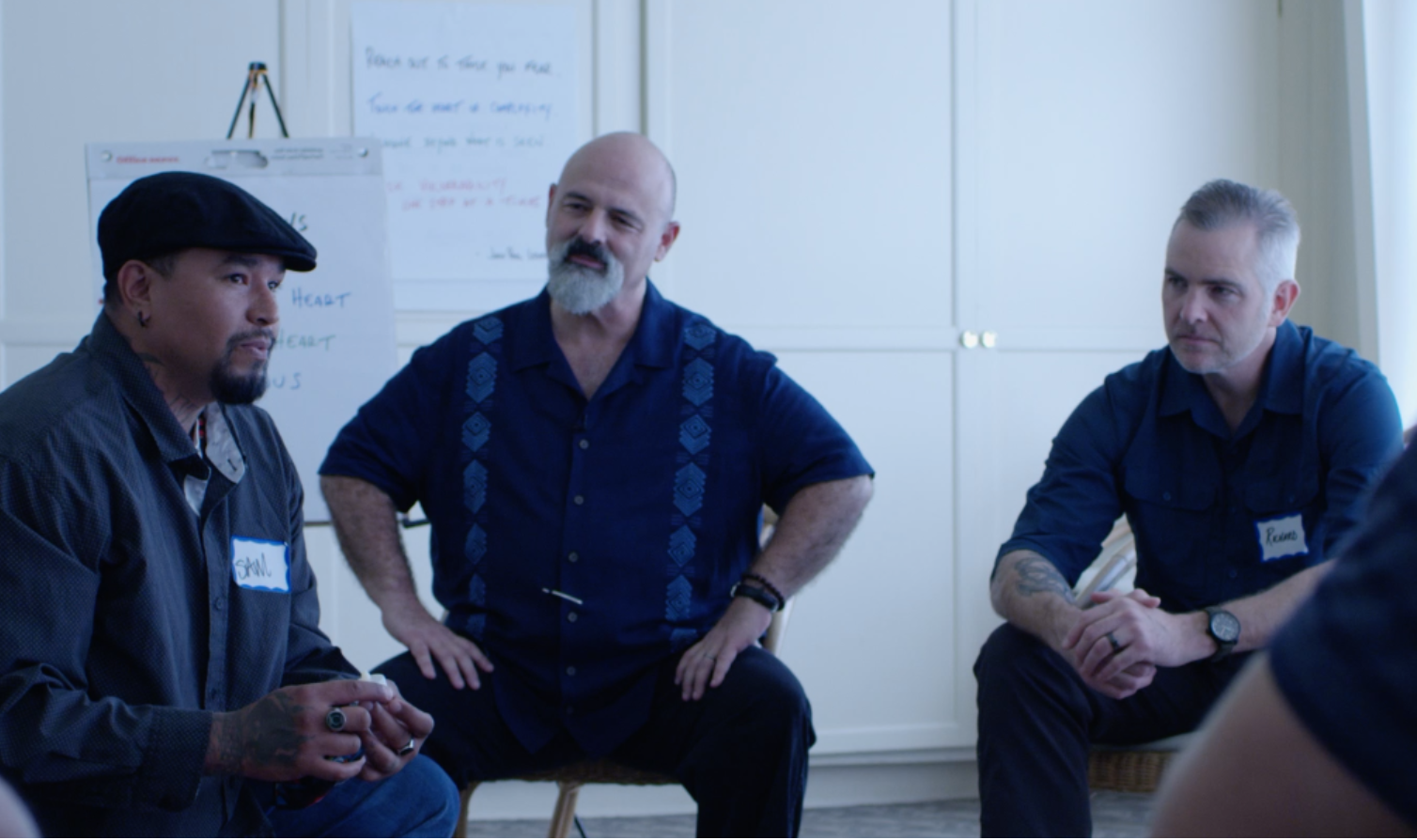 The POWER program was highlighted at this year’s International Association of Chiefs of Police Officer Wellness Symposium in a presentation entitled “Mindfulness & Resiliency Meets Community Engagement: Empathy, Awareness & Procedural Justice” led by Seide and Richard Goerling, retired police lieutenant and mindfulness trainer. Goerling, who helped design the POWER program, explains that compassion is critically important for health as well as humanity. “Compassion erodes when we are constantly exposed to trauma and suffering without effective interventions to equip officers to show up day in and day out.”
The POWER program was highlighted at this year’s International Association of Chiefs of Police Officer Wellness Symposium in a presentation entitled “Mindfulness & Resiliency Meets Community Engagement: Empathy, Awareness & Procedural Justice” led by Seide and Richard Goerling, retired police lieutenant and mindfulness trainer. Goerling, who helped design the POWER program, explains that compassion is critically important for health as well as humanity. “Compassion erodes when we are constantly exposed to trauma and suffering without effective interventions to equip officers to show up day in and day out.”
Seide continues: “POWER equips officers with tools to navigate critical incidents, as well as the day-to-day stressors that build up over a career. In the council huddles, we hear others sharing stories and it encourages us to open up. When we listen to these stories, we discover commonalities and that starts to strengthen bonds. Relationships are built on listening and regard and a heightened capacity for empathy. And those qualities are important components of procedural justice.”
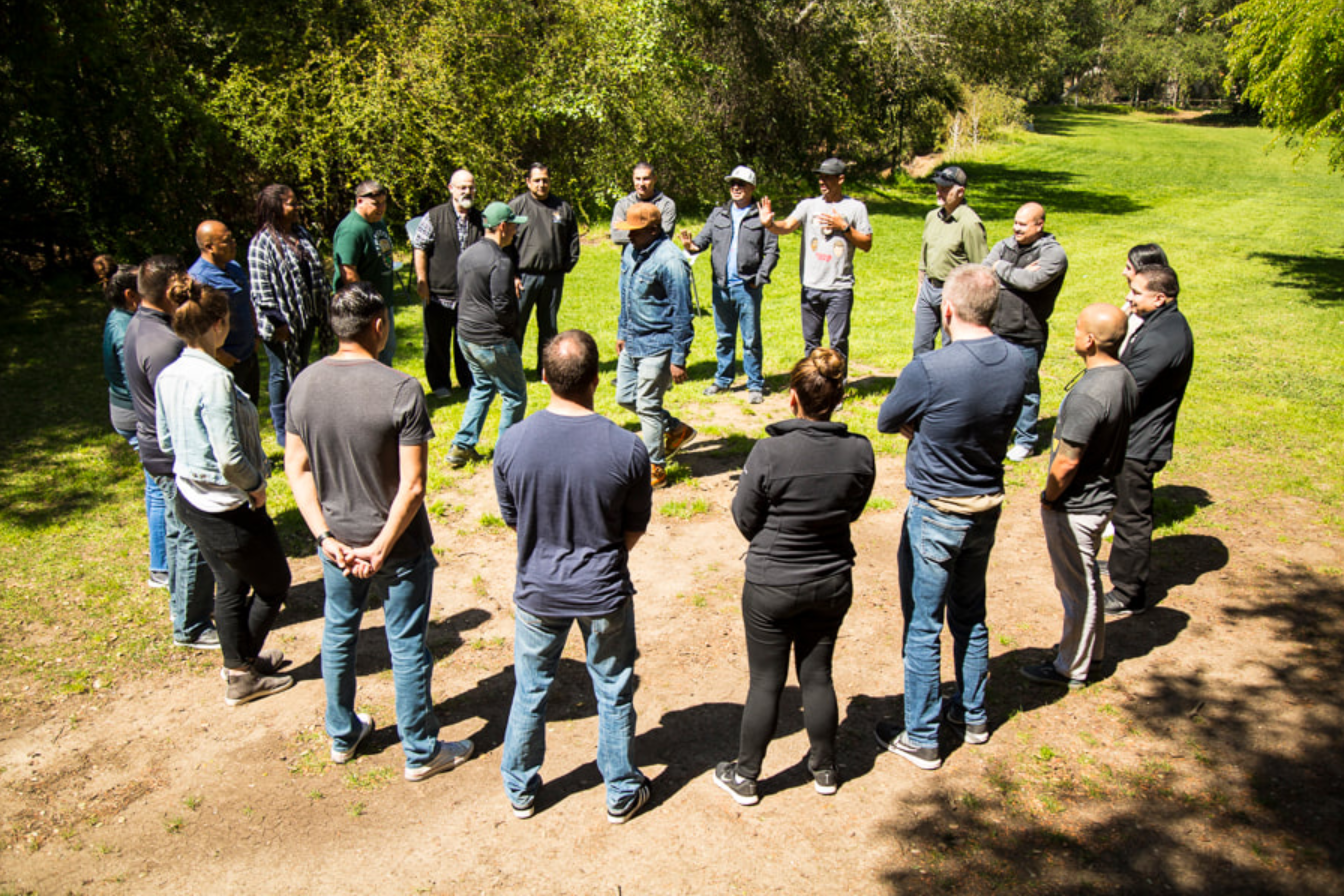 Through the foundation of POWER and its other programs, Center for Council has been able to facilitate cross-sector gatherings of program graduates in which participants extend the skills of mindfulness and compassionate communication and learn to interact with one another with respect and a deeper ability to hear one another’s stories. A 2018 documentary, “Cops & Communities: Circling Up,” captures one such event. The assembled group included LAPD officers, community activists, and recently released parolees. Through this day-long encounter, individuals previously at odds with one another found a pathway to understanding and appreciation for their shared humanity. While the lessons from this day were impressive, the sequence of events that made this engagement possible tell a deeper story about the enduring resource of council and its ability to move society beyond “us” and “them.”
Through the foundation of POWER and its other programs, Center for Council has been able to facilitate cross-sector gatherings of program graduates in which participants extend the skills of mindfulness and compassionate communication and learn to interact with one another with respect and a deeper ability to hear one another’s stories. A 2018 documentary, “Cops & Communities: Circling Up,” captures one such event. The assembled group included LAPD officers, community activists, and recently released parolees. Through this day-long encounter, individuals previously at odds with one another found a pathway to understanding and appreciation for their shared humanity. While the lessons from this day were impressive, the sequence of events that made this engagement possible tell a deeper story about the enduring resource of council and its ability to move society beyond “us” and “them.”
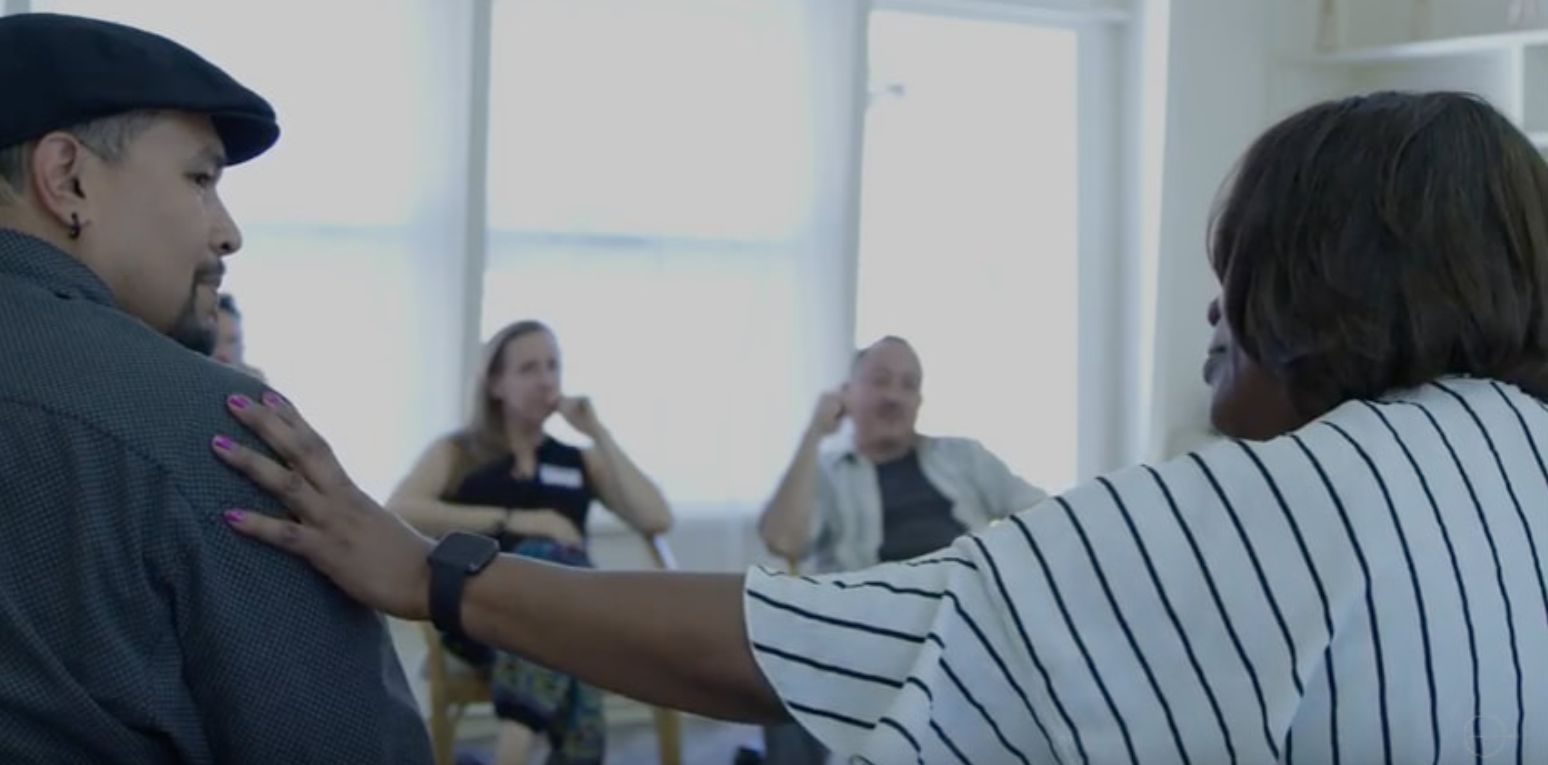 Even when equipped with the skills of self-awareness, self-regulation, and enhanced communication, people often resist coming together. Seide reports that community activists and formerly incarcerated individuals felt trepidation joining the “Cops & Communities” event. Officers talked about their intention to “set the record straight” and expressed discomfort greeting and shaking the hands of former gang members. Some activists wondered if officers had brought concealed weapons, ready for violence. Seide remembers the tension evident in the body language as each individual took their seat in the first group council. And yet, with each moment to pause and settle, each breath and round of introduction, the resistance began to soften. Details emerged in stories shared about the human experience of being a parent, a neighbor, a son-in-law, a person of faith. What each individual had planned to say gave way to stories of childhood, family, pets, and grief for lost loved ones. Stories shared with vulnerability seemed to resonate around the circle. Those who had assumed they’d be at odds with one another were surprised by the commonalities. The skills each had learned in their individual training programs emerged, providing the foundation for patience, listening, and empathy. There was no need for mediation, debate, or intervention. A sense of community had emerged.
Even when equipped with the skills of self-awareness, self-regulation, and enhanced communication, people often resist coming together. Seide reports that community activists and formerly incarcerated individuals felt trepidation joining the “Cops & Communities” event. Officers talked about their intention to “set the record straight” and expressed discomfort greeting and shaking the hands of former gang members. Some activists wondered if officers had brought concealed weapons, ready for violence. Seide remembers the tension evident in the body language as each individual took their seat in the first group council. And yet, with each moment to pause and settle, each breath and round of introduction, the resistance began to soften. Details emerged in stories shared about the human experience of being a parent, a neighbor, a son-in-law, a person of faith. What each individual had planned to say gave way to stories of childhood, family, pets, and grief for lost loved ones. Stories shared with vulnerability seemed to resonate around the circle. Those who had assumed they’d be at odds with one another were surprised by the commonalities. The skills each had learned in their individual training programs emerged, providing the foundation for patience, listening, and empathy. There was no need for mediation, debate, or intervention. A sense of community had emerged.
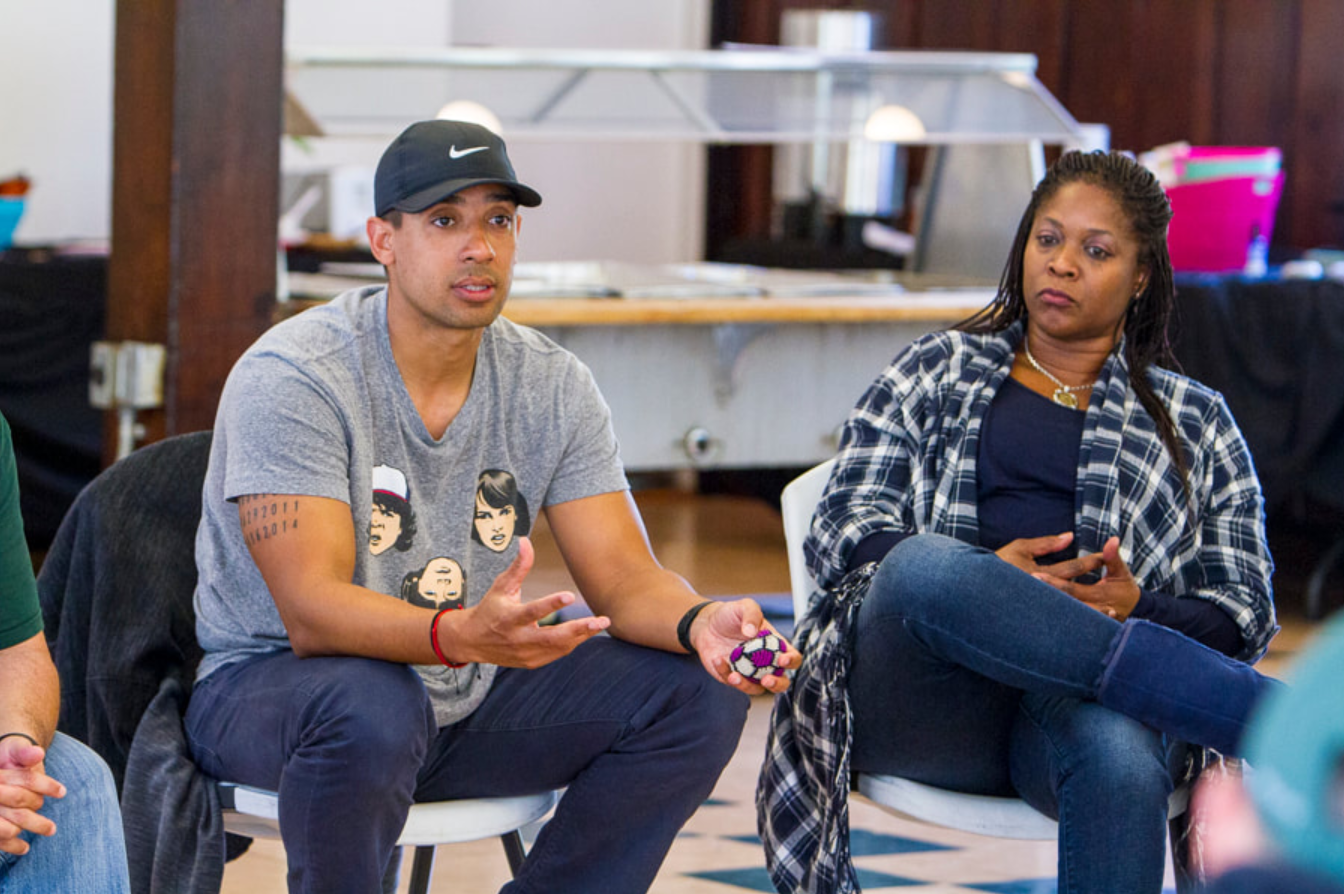 While many are looking for solutions to heal police-community relations, Center for Council understands that the work begins upstream. Seide’s feeling is that “we can have successful experiences bringing police and community together if we first do the foundational work within each group, equipping them with the skills of self-awareness and self-regulation before engaging with others.” POWER is designed to provide officers with durable skills necessary to navigate the complexities of their career as well as engaging with society in a beneficial way.
While many are looking for solutions to heal police-community relations, Center for Council understands that the work begins upstream. Seide’s feeling is that “we can have successful experiences bringing police and community together if we first do the foundational work within each group, equipping them with the skills of self-awareness and self-regulation before engaging with others.” POWER is designed to provide officers with durable skills necessary to navigate the complexities of their career as well as engaging with society in a beneficial way.
Center for Council is focused on rolling out its programs more broadly and is confident this work can have a transformative impact on law enforcement and communities at large. To learn more about POWER and Center for Council, visit the POWER Training page.
To learn more about how the Center for Council fosters recognition of the value of diverse cultures and shared humanity between police and community, listen to the new episode of the COPS Office podcast series, The Beat.
All photos courtesy of Center for Council.
Subscribe to Email Updates
To sign up for monthly updates or to access your subscriber preferences, please enter your email address in the Subscribe box.






